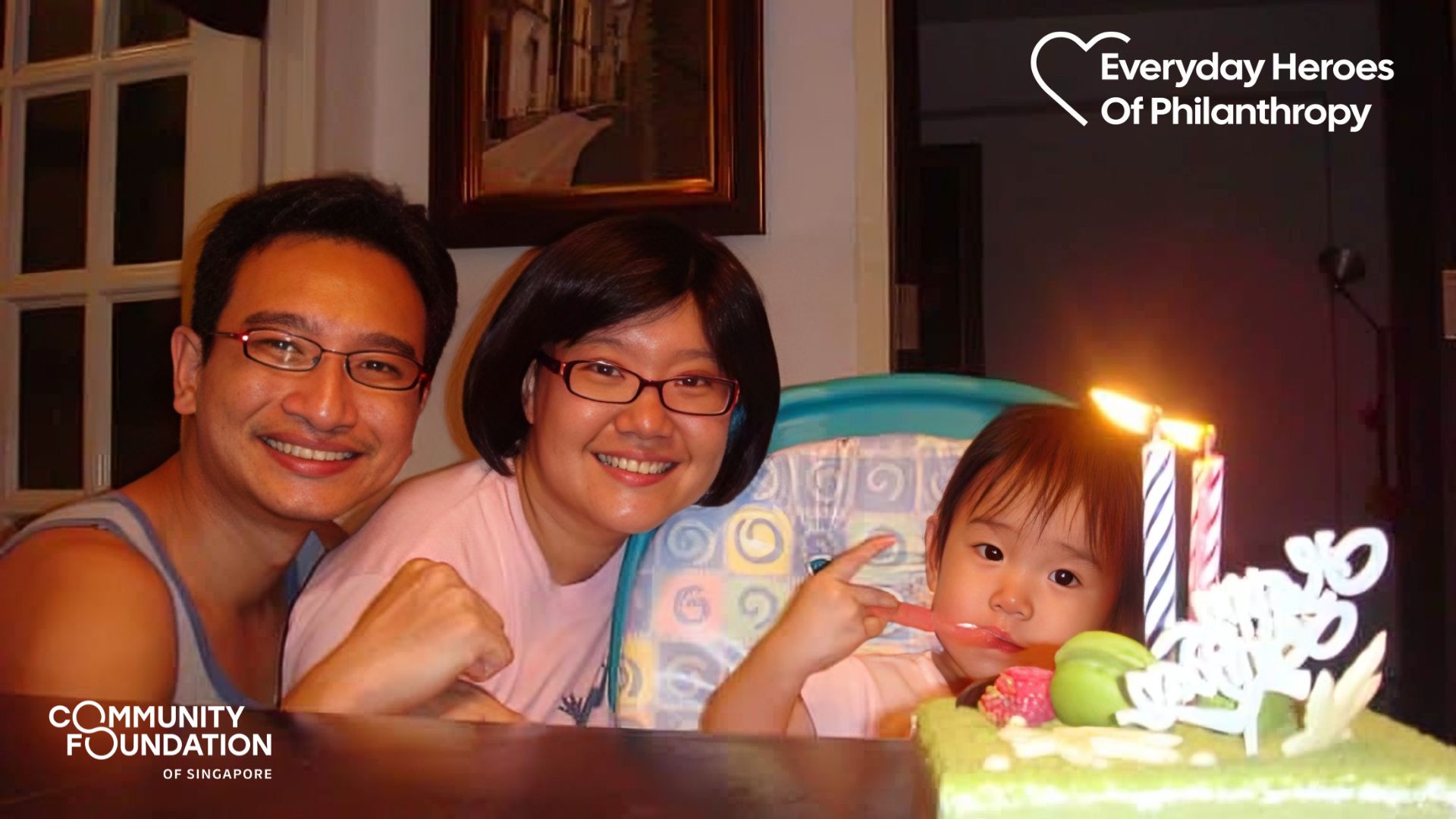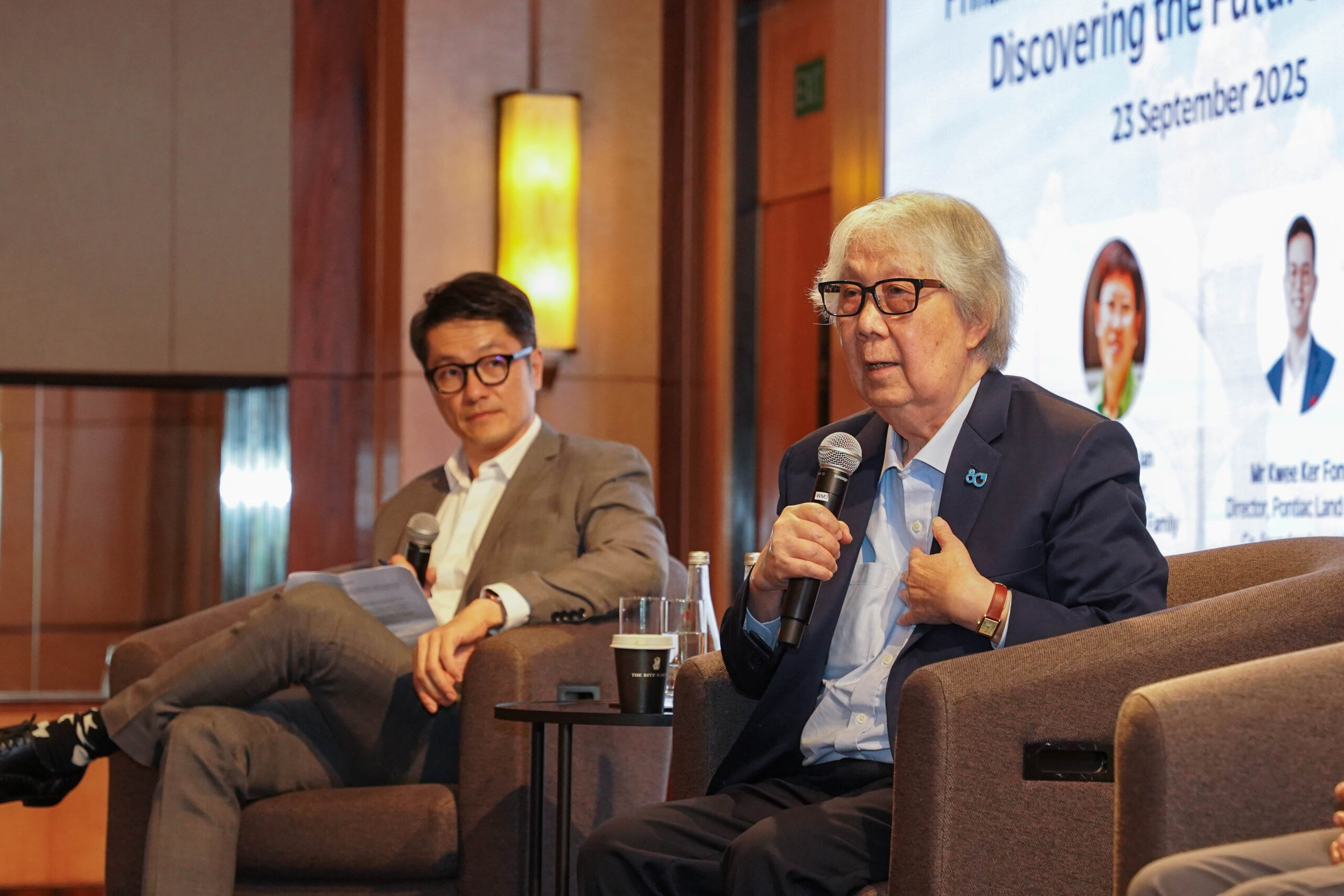Healing and hope for migrant workers


Our decade-long partnership with HealthServe has helped Singapore’s only medical charity for migrant workers bring healthcare, mental health support and social assistance to this underserved community. CFS is commemorating 15 years of giving and this story is one of a three-part series that highlights the strong relationships CFS has fostered with charities over the years.
They have helped me with everything. If I ever had a problem at the hospital, with my company or dormitory, they would step in. Here, I don’t have family. But HealthServe has helped me like family.
Rubel, injured migrant worker from Bangladesh
Like many migrant workers, Shah* came to Singapore to provide a better life for his family in Bangladesh. But soon after he arrived, he was struck with inflammatory bowel disease, causing gastric issues, skin problems and chest pain. All this came on top of the devastating diagnosis of his father’s cancer and his wife’s stomach ulcers.
Shah was under immense pressure to take on loans to pay for multiple mounting medical bills in excess of $16,000. The financial and emotional stress caused his health to worsen. He is not alone in facing unexpected hardships while trying to provide for family back home. Close to one million low-wage foreign workers reside in Singapore. Access to affordable healthcare is limited for many of them and none were prepared, mentally or physically, for the Covid-19 pandemic.
Joining forces to help an underserved community
Thousands of migrant workers were quarantined in cruise ships, hotels and dormitories when Covid-19 hit Singapore’s shores. Many struggled mentally, feeling helpless. Others needed medical care. These hardships became the catalyst for the Community Foundation of Singapore (CFS) to join hands with our long-time charity partner, HealthServe, and help this underserved community. CFS decided to pool donations into a Collective Impact Fund called the Sayang Sayang Fund. With a grant from this fund and other funders, HealthServe was able to deliver much-needed medical attention, mental health support and social assistance to approximately 7,500 workers. For these foreign workers on the margins of society, HealthServe offered healing and hope.
Alongside these grants, CFS supported HealthServe with grants from the KrisFam Fund and the Kampong Spirit Fund. The KrisFam Fund grant enabled HealthServe to treat workers with serious chronic health conditions and extend financial aid to those in need while the Kampong Spirit Fund grant allowed the charity to provide the migrant community with meals and groceries amid the on-off pandemic lockdowns in 2021. For beneficiaries whose illness or injuries made it impossible for them to work, the much-needed help and donations came as a huge relief. In all, HealthServe made about 470 visits to foreign worker dormitories across Singapore.
The continuation of a long and rewarding partnership
HealthServe started as a small clinic providing medical and dental services to the vulnerable migrant-worker community in 2006. Today, HealthServe offers a range of expanded services comprising mental health programmes and counselling, casework support for injuries and salary-related issues, and other forms of social assistance, much of it supported by grants and donations facilitated by CFS. Our partnership with this unique charity goes back to 2013.
Over the past 16 years, HealthServe has remained mission-focused in serving low-wage migrant workers who fall through the cracks, even as we tackle constant challenges and headwinds such as post-pandemic dips in both donations and volunteers. Only with your continued trust and support can we do more. We look forward to actively leading every migrant worker in need towards a life of health, well-being, and dignity, with you.
Dr Benjamin Kuan, CEO, HealthServe Ltd
HealthServe’s commitment to migrant workers’ holistic health, well-being and dignity aligns with our focus on promoting mental well-being and healthcare to marginalised communities.
“CFS has helped educate donors and stakeholders about the plight of this very underserved segment of society. As a result, HealthServe’s mission is more well understood,” says Dr Benjamin Kuan, CEO of HealthServe. “The partnership between HealthServe and CFS has grown, with CFS shifting its vision to long-term outcomes, aligning with HealthServe’s goal of preventive care, which is also in line with the nation’s Healthier SG strategy.”
Philanthropic support is critical
Largely volunteer run, HealthServe operates with a small staff team and hundreds of medical and non-medical volunteers and interns. Fundraising can be a challenge, especially now that reduced charitable dollars tend to go towards causes supporting Singapore citizens post-pandemic. Philanthropic support from CFS donors therefore remains crucial.
“Over the years, CFS has demonstrated its ability to form strategic partnerships to deliver funds to the community in the fastest and most effective way and HealthServe is confident that our partnership with CFS will remain relevant in serving the underserved segments in society,” says Dr Kuan.
We are proud to maintain a long-term partnership with HealthServe and are committed to working with other like-minded charities to bring greater support to Mental Well-being as a cause and to create greater impact for the underserved communities.
CFS is celebrating our anniversary throughout 2023—15 years of empowering donors to make a meaningful impact. Since our inception in 2008, we have received over S$292 million in donations in Singapore and disbursed over S$157 million in grants to over 400 charity partners.
To discover how you can make a difference, please visit cf.org.sg/contact-us/get-in-touch/
Our decade-long partnership with HealthServe has helped Singapore’s only medical charity for migrant workers bring healthcare, mental health support and social assistance to this underserved community. CFS is commemorating 15 years of giving and this story is one of a three-part series that highlights the strong relationships CFS has fostered with charities over the years.
They have helped me with everything. If I ever had a problem at the hospital, with my company or dormitory, they would step in. Here, I don’t have family. But HealthServe has helped me like family.
Rubel, injured migrant worker from Bangladesh
Like many migrant workers, Shah* came to Singapore to provide a better life for his family in Bangladesh. But soon after he arrived, he was struck with inflammatory bowel disease, causing gastric issues, skin problems and chest pain. All this came on top of the devastating diagnosis of his father’s cancer and his wife’s stomach ulcers.
Shah was under immense pressure to take on loans to pay for multiple mounting medical bills in excess of $16,000. The financial and emotional stress caused his health to worsen. He is not alone in facing unexpected hardships while trying to provide for family back home. Close to one million low-wage foreign workers reside in Singapore. Access to affordable healthcare is limited for many of them and none were prepared, mentally or physically, for the Covid-19 pandemic.
Joining forces to help an underserved community
Thousands of migrant workers were quarantined in cruise ships, hotels and dormitories when Covid-19 hit Singapore’s shores. Many struggled mentally, feeling helpless. Others needed medical care. These hardships became the catalyst for the Community Foundation of Singapore (CFS) to join hands with our long-time charity partner, HealthServe, and help this underserved community. CFS decided to pool donations into a Collective Impact Fund called the Sayang Sayang Fund. With a grant from this fund and other funders, HealthServe was able to deliver much-needed medical attention, mental health support and social assistance to approximately 7,500 workers. For these foreign workers on the margins of society, HealthServe offered healing and hope.
Alongside these grants, CFS supported HealthServe with grants from the KrisFam Fund and the Kampong Spirit Fund. The KrisFam Fund grant enabled HealthServe to treat workers with serious chronic health conditions and extend financial aid to those in need while the Kampong Spirit Fund grant allowed the charity to provide the migrant community with meals and groceries amid the on-off pandemic lockdowns in 2021. For beneficiaries whose illness or injuries made it impossible for them to work, the much-needed help and donations came as a huge relief. In all, HealthServe made about 470 visits to foreign worker dormitories across Singapore.
The continuation of a long and rewarding partnership
HealthServe started as a small clinic providing medical and dental services to the vulnerable migrant-worker community in 2006. Today, HealthServe offers a range of expanded services comprising mental health programmes and counselling, casework support for injuries and salary-related issues, and other forms of social assistance, much of it supported by grants and donations facilitated by CFS. Our partnership with this unique charity goes back to 2013.
Over the past 16 years, HealthServe has remained mission-focused in serving low-wage migrant workers who fall through the cracks, even as we tackle constant challenges and headwinds such as post-pandemic dips in both donations and volunteers. Only with your continued trust and support can we do more. We look forward to actively leading every migrant worker in need towards a life of health, well-being, and dignity, with you.
Dr Benjamin Kuan, CEO, HealthServe Ltd
HealthServe’s commitment to migrant workers’ holistic health, well-being and dignity aligns with our focus on promoting mental well-being and healthcare to marginalised communities.
“CFS has helped educate donors and stakeholders about the plight of this very underserved segment of society. As a result, HealthServe’s mission is more well understood,” says Dr Benjamin Kuan, CEO of HealthServe. “The partnership between HealthServe and CFS has grown, with CFS shifting its vision to long-term outcomes, aligning with HealthServe’s goal of preventive care, which is also in line with the nation’s Healthier SG strategy.”
Philanthropic support is critical
Largely volunteer run, HealthServe operates with a small staff team and hundreds of medical and non-medical volunteers and interns. Fundraising can be a challenge, especially now that reduced charitable dollars tend to go towards causes supporting Singapore citizens post-pandemic. Philanthropic support from CFS donors therefore remains crucial.
“Over the years, CFS has demonstrated its ability to form strategic partnerships to deliver funds to the community in the fastest and most effective way and HealthServe is confident that our partnership with CFS will remain relevant in serving the underserved segments in society,” says Dr Kuan.
We are proud to maintain a long-term partnership with HealthServe and are committed to working with other like-minded charities to bring greater support to Mental Well-being as a cause and to create greater impact for the underserved communities.
CFS is celebrating our anniversary throughout 2023—15 years of empowering donors to make a meaningful impact. Since our inception in 2008, we have received over S$292 million in donations in Singapore and disbursed over S$157 million in grants to over 400 charity partners.
To discover how you can make a difference, please visit cf.org.sg/contact-us/get-in-touch/
- Related Topics For You: CHARITY STORIES, COMMUNITY IMPACT FUND, DONOR STORIES, DONOR-ADVISED FUND, HEALTH, MENTAL WELLBEING, SAYANG SAYANG FUND, STORIES OF IMPACT


